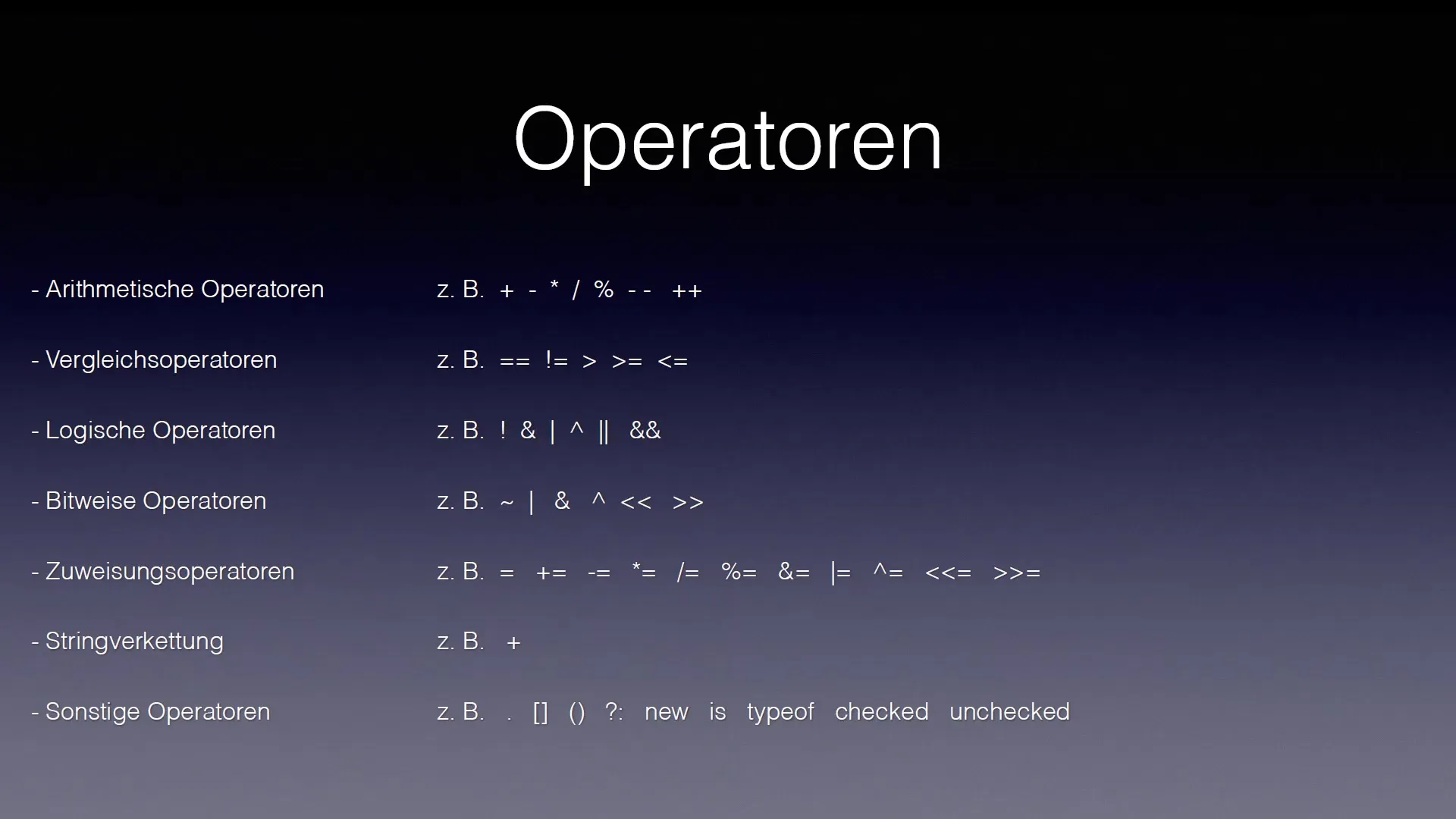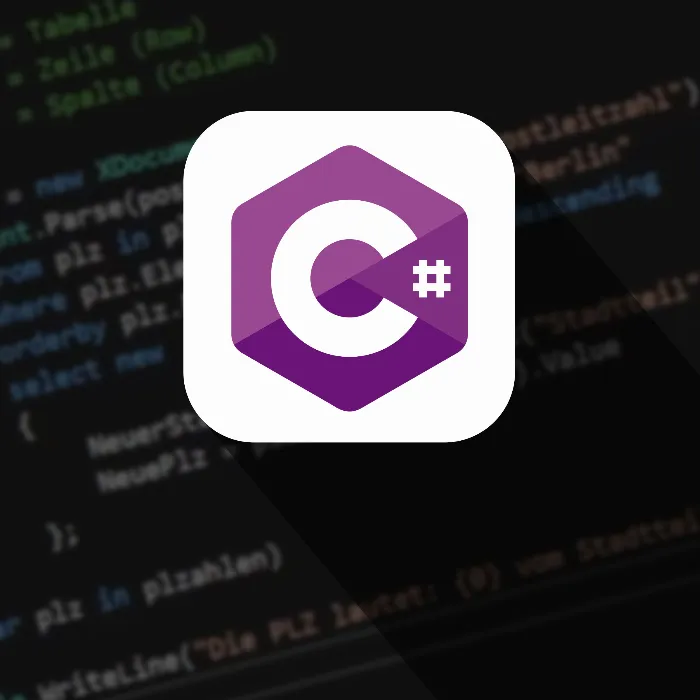There are many fundamental concepts in programming that one must understand in order to truly be effective at coding. One of these key areas is operators. They play a central role in programming as they provide the means to manipulate data and variables. In this document, you will receive a detailed overview of the different types of operators in C# and learn about their application.
Key Insights
- Operators are divided into different categories.
- The main categories include arithmetic, comparison, and logical operators.
- A deeper knowledge of operators is essential for programming.
Step-by-Step Guide
1. Introduction to Operators
Before we dive into the specific types of operators, it's important to establish a related theoretical foundation. Operators are special symbols or keywords in C# that perform an operation on one or more operands. They are fundamental for writing code and the logic behind programming instructions.

2. Different Operators and Their Categories
In C#, operators are divided into several categories. The most important ones include:
- Arithmetic Operators: These are responsible for mathematical operations such as addition, subtraction, multiplication, and division.
- Comparison Operators: These operators compare two values and return a boolean value (true or false) as a result. Examples include equality, inequality, greater than, and less than.
- Logical Operators: These are used for logical comparisons to combine or negate conditions.
3. Arithmetic Operators in C
Arithmetic operators are the most commonly used operators in C#. In the next step, we will look at some examples to better understand how these are used in practice. For example, adding two variables will return a numerical value.
4. Comparison Operators in Practical Use
Although we have not yet addressed the comparison operators in the tutorial, they are essential for controlling the flow of the program. They allow you to check conditions and make decisions in the code based on them. It is important to be familiar with these operators to create logical structure in your programs.
5. Understanding Logical Operators
Logical operators complement comparison operators and are particularly useful when working with conditions. They help you formulate more complex conditions by combining the results of several simple conditions. It is also important to know the precedence of operators to avoid unexpected results.
6. Practical Application and Summary
As mentioned earlier, not all of these operators are used equally frequently. Some are a common part of your C# code, while others are only used in specific scenarios. However, the basics of the theory are essential for your development as a programmer. In the following tutorials, we will take a closer look at specific examples and applications of these operators.
Summary – Overview of Operators in C
This guide has provided you with an overview of the different types of operators in C#, including arithmetic, comparison, and logical operators. Understanding these components is crucial for fully leveraging the potential of C# in programming.
Frequently Asked Questions
What are arithmetic operators?Arithmetic operators perform mathematical operations such as addition, subtraction, multiplication, and division.
How do comparison operators work?Comparison operators compare two values and return true or false, depending on the condition.
What are logical operators?Logical operators allow the combining or negating of conditions in C#.
What role do operators play in programming?Operators are essential for data manipulation and the logic in programming instructions.


